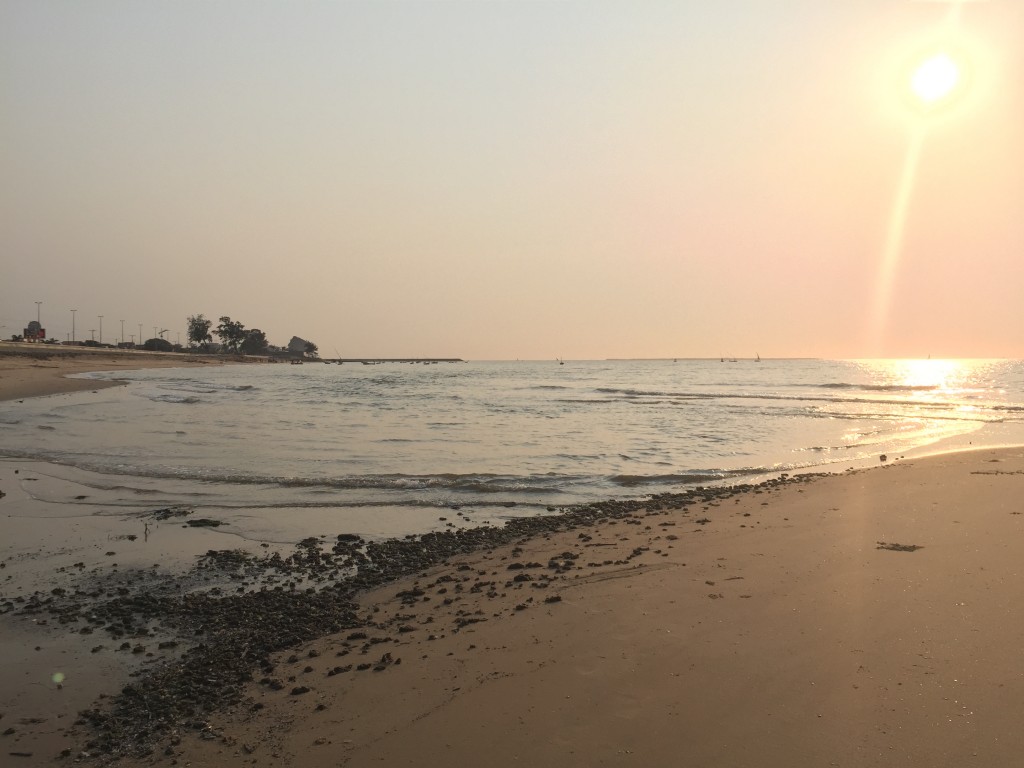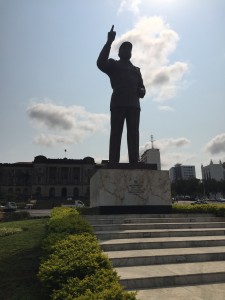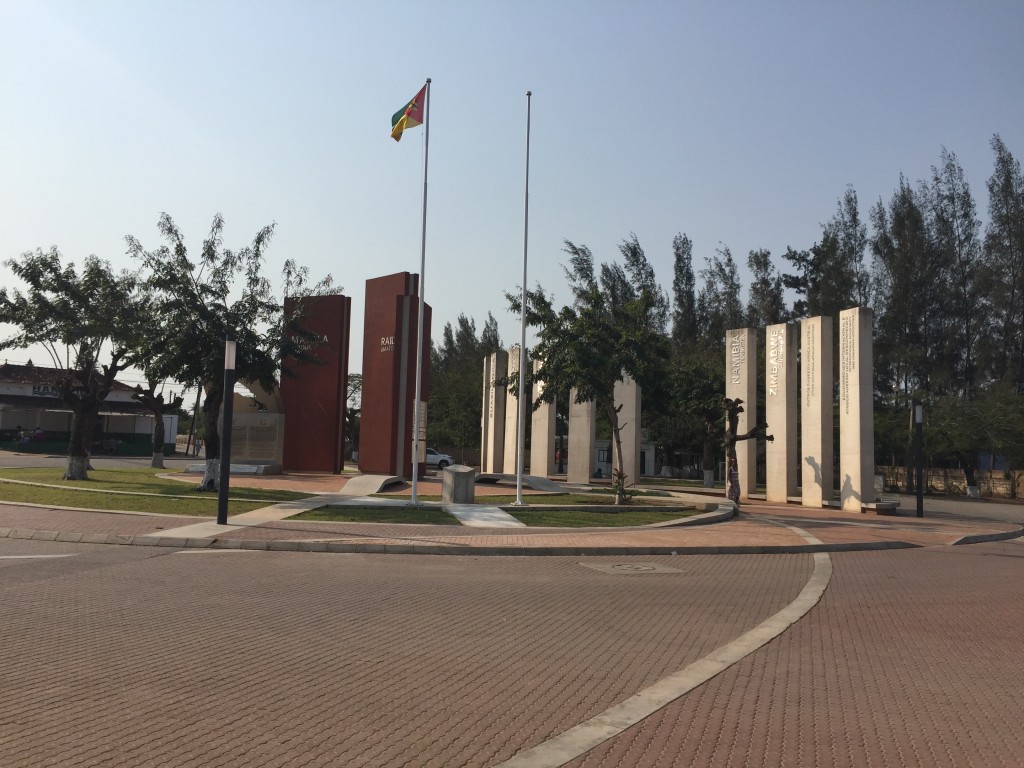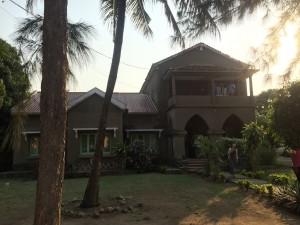
September 20-23rd, my peers and I drove to Maputo, Mozambique from Durban, South Africa in order to get an on the ground look at the relationship between South Africa (ANC) and Mozambique (Frelimo) during and post apartheid. In order to get to Maputo we crossed the South African border into Swaziland then from Swaziland into Maputo. The journey was an all day venture and I would do it all over again in a heartbeat for several reasons.
First, crossing an African border on land is an experience for the books. To cross an African border on land as an American is such a rare experience because usually one just flies into another country. I have my reasons for not going more in detail about the experience but I will say that it’s a totally different experience crossing countries on land and it’s definitely eye opening and a must do for Americans.
Another reason, I would repeat this trip is Maputo is it is an amazing little city. The Portuguese colonized Mozambique, so there is an Afro-Latino feel to the city. Compared to Durban, Maputo is ‘turn-up’ central. I would describe Durban as a sort of sleepy city like Holland, MI where as Maputo is like Chicago, the city that never sleeps. I mean you will find droves of people walking around Maputo at anytime of the day everyday of the week, it’s amazing. I think Maputo and Durban are good complimenting cities, in the sense that if you live in one you should vacation in the other for your sanity :).

A third reason to return to Maputo is the history of the place. I already mentioned that the Portuguese colonized Mozambique and fun fact the Communist party Frelimo liberated Mozambique in 1975. Mozambique being Communist created a strenuous relationship between itself, apartheid South Africa and the US if you can imagine back in the Cold War. Fear of Communism led the apartheid South African and US governments to support Renamo, the opposition to Frelimo. Frelimo and Renamo had a bloody civil war for 12 years in which whole parts of Maputo were bombed and 1 million Mozambicans died. Complete craziness!

Meanwhile, Frelimo completely supported the ANC’s struggle for liberation during apartheid. So much so that uMkhonto weSizwe (MK) the armed part of the ANC, had camps in Mozambique. And when the South African government bombed several of the MK secret houses, in the Matola Raid, the leader of Frelimo at the time, Samora Machel, told Oliver Tambo, the President of the ANC, to “Let them come.” Mozambique would take the hits for South Africa’s freedom struggle because it was not just about Mozambique, or South Africa’s freedom but all of Southern Africa’s freedom from colonization. To continue on this note, there is a beautiful history of struggle among the frontline states of South Africa i.e. Botswana, Mozambique, Tanzania, Zimbabwe, Zambia etc. All of these countries struggled together at one point or another for their freedoms. In addition, while we were in Maputo, we visited the Matola Monument and Interpretative Centre that commemorates the relationships between the frontline states. The Centre hones in on the Matola Raid, thus our visit to the MK houses that were attack.


But I think the Centre’s main focus is to help the front line states remember their relationship as all the countries press forward in their own perspective ways. It’s so important to remember the histories of struggle especially in times of xenophobia when Mozambicans can be killed in South Africa for no other reason then they are foreigners. It’s so important to remember.
My fourth reason for returning to Maputo is language. After liberation from the Portuguese, Frelimo wanted to unify the country, so they decide to make Portuguese the official language. Now taking on the colonizer’s language has it own implications but the point is most people in Maputo speak Portuguese. Oh and might I mention only Portuguese, like they are not trying to learn English anytime soon. So here I am, barely learning Zulu and now I am thrust into a Portuguese speaking environment with very little English available anywhere. This teaches me several things. First, I am humbled because I think as an English speaker, there is the arrogance that everyone speaks English or at least wants to learn English and that’s not true. Second, that language really is a bridge and a barrier when entering new spaces. It’s one thing to not know the culture, but if you the know the language at least you can ask questions. But if you don’t know the culture or the language, you run the risk of being perceived as rude, arrogant or just a silly American tourist. Lastly, while in Maputo we had the privilege of listening in on a lecture at the Frelimo party, the lecture was in Portuguese. Listening to the lecture, I got a peak into what a study abroad program based in a non-English speaking university would have been like for me. I would have learned Portuguese for sure but it would have been a challenging adjustment yet equally as valuable experience as my current program, that being said, I am very certain everyday that this program is for me, no worries.
In conclusion, Maputo is the place to be, all should go. Learn a little Portuguese before you go there or it will be a struggle but an exciting time nonetheless. I love Maputo, if you did not already know this. It’s the bomb diggity even though Durban holds my heart, Maputo will forever be one of my favorite places.

